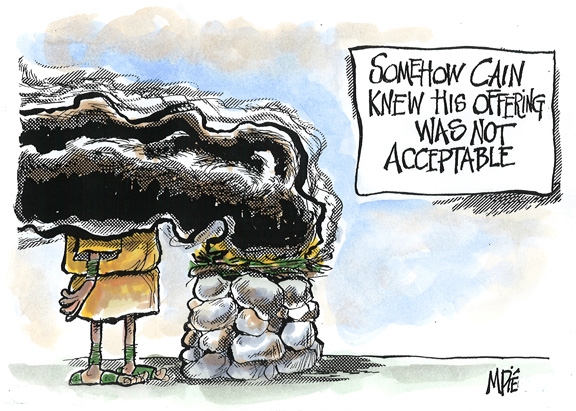From the depths of despair, O LORD,
I call for your help.
The first line of Psalm 130 is one of the most frequently quoted of the
Psalms: “Out of the depths have I cried unto thee, O LORD” (130:1,
KJV). Why is this simple line so commonly used in prayers, hymns, and
spiritual songs? Because it expresses what it’s like to pray when we’re
facing overwhelming challenges. Our hearts resonate with the psalmist
when we pray, not with joyful praise or quiet calm, but with urgent
desperation. The Message puts it this way: “Help, GOD–the bottom has fallen out of my life!”
The
word translated in Psalm 130:1 as “depths” refers literally to the deep
places of the sea. In Isaiah 51:10, for example, the prophet asks the
Lord: “Are you not the same today, the one who dried up the sea, making
a path through the depths so that your people could cross over?”
Metaphorically, the use of “depths” signifies a place of serious need
and vulnerability. In English, we speak of being in deep trouble. Or we
say that we’re drowning when we feel buried by the demands of life.
Thus we can easily relate to the cry of the psalmist as he prays “out
of the depths.”
Psalm 130:1 reminds us of two crucial elements
of the life of faith. First, sometimes we will be in the depths, the
depths of despair, doubt, and desperation. There will be times when we
feel as if life is crashing in upon us. We can expect such times and
prepare for them. Second, when we are in the depths, we are invited to
cry out to the Lord. We don’t have to pretend as if we’re filled with
trustful calm. We don’t have to pray with carefully crafted prose.
Rather, we can cry out to God with whatever words or sighs rise
spontaneously to our lips.
I have dear friends who are in the
depths right now. Economic hardships have been piled on top of their
parental challenges. And then last week one of them was diagnosed with
a serious, potentially debilitating chronic disease. Their depths just
got much deeper. From this scary place, they continue to cry out to
God, putting their hope in his mercy. And those of us who love them
join them in these cries, adding our voices to theirs. Thus, even when
you and I are not facing seemingly insurmountable obstacles in our own
lives, our love for others moves us to cry out from the depths: “Hear
my cry, O Lord. Pay attention to my prayer” (130:2).
QUESTIONS FOR REFLECTION: When you have been in the depths, how have you cried out to God? What helps you to pray when you feel discouraged?
PRAYER:
O Lord, I must admit that I don’t like being in the depths. Yet how
thankful I am that when I face difficulties and even despair, I can cry
out to you.
Gracious God, I know that my future will have
depths, even as there have been many in the past. When I find myself in
these deep and hopeless places, help me to call out to you, to trust
you, even to know that you are there for me.
Today, I remember
people in my life who are in the depths right now. I think of the
friends I mentioned above, and pray that you’ll grant them healing,
wisdom, and peace. I think of another friend who faces the possibility
of major surgery, and another friend who is still mourning the death of
her son. For these, and so many others, I offer my cries for your
mercy. Be present to them, Lord. Hear their prayers and answer them.
Most of all, bless them with your peace and the reassurance of your
unfailing love. I pray in the name of Jesus, Amen.
_________________________________________________
 Would you like to receive a Daily Reflection like this one in your email inbox each morning?
Would you like to receive a Daily Reflection like this one in your email inbox each morning?
Here’s how . . . .
This devotional comes from The High Calling of Our Daily Work (www.thehighcalling.org), a wonderful website about work and God. You can read my Daily Reflections there, or sign up to have them sent to your email inbox each day. This website contains lots of encouragement for people who are trying to live out their faith in the workplace.

